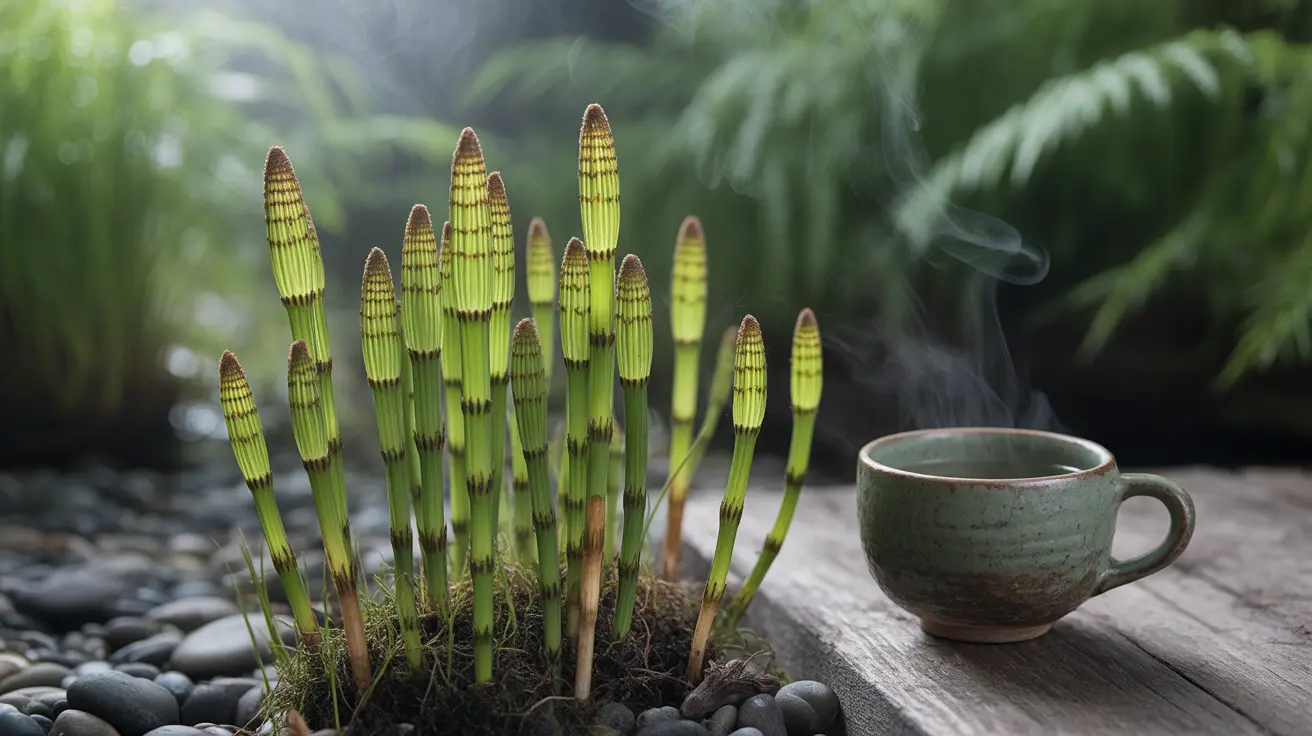For centuries, horsetail tea has been used in traditional medicine for its potential benefits on urinary and kidney health. As more people turn to natural remedies, questions about horsetail tea's effects on kidney function have become increasingly common. This comprehensive guide examines the relationship between horsetail tea and kidney health, helping you make an informed decision about its use.
Understanding Horsetail Tea and Its Components
Horsetail tea is derived from the Equisetum arvense plant, which contains several bioactive compounds including silica, flavonoids, and various minerals. These components are thought to contribute to its traditional use as a natural diuretic and kidney support supplement.
Potential Benefits for Kidney Health
While research on horsetail tea's direct effects on kidney health is limited, several potential benefits have been observed:
- Natural diuretic properties
- Possible support for mineral balance
- Antioxidant effects that may protect kidney tissue
- Potential assistance with mild fluid retention
Safety Considerations and Precautions
Despite its traditional use, horsetail tea requires careful consideration before incorporation into your health routine:
Dosage and Preparation
The appropriate dosage of horsetail tea can vary based on individual factors. Most practitioners recommend limiting consumption to 2-3 cups daily for no more than 6 weeks continuously.
Medical Supervision Requirements
It's crucial to consult with a healthcare provider before using horsetail tea, especially if you have:
- Existing kidney conditions
- Diabetes
- High blood pressure
- Are taking prescription medications
Potential Risks and Contraindications
Several important risks should be considered before using horsetail tea:
- Thiamine deficiency risk
- Potential mineral imbalances
- Interaction with certain medications
- Risk of heavy metal accumulation with prolonged use
Guidelines for Safe Use
To maximize safety when consuming horsetail tea:
- Choose high-quality, certified organic products
- Follow recommended dosage guidelines
- Monitor for any adverse reactions
- Take breaks between periods of use
- Maintain adequate hydration
Frequently Asked Questions
- Is horsetail tea safe for people with kidney problems or kidney disease?
People with kidney problems or kidney disease should exercise extreme caution with horsetail tea and only use it under direct medical supervision. The tea's diuretic effects and mineral content could potentially impact kidney function and interact with medications.
- Can drinking horsetail tea help with kidney stones or improve kidney function?
While some traditional practices suggest horsetail tea may help with kidney stones, scientific evidence is limited. Its diuretic properties might support kidney function by promoting urination, but more research is needed to confirm these benefits.
- What are the possible side effects and risks of taking horsetail tea for urinary or kidney health?
Common side effects include electrolyte imbalances, thiamine deficiency, and potential interactions with medications. Some people may experience nausea, mild stomach upset, or changes in blood pressure.
- How does horsetail tea work as a diuretic, and should I use it for fluid retention?
Horsetail tea acts as a natural diuretic by increasing urine production. While it may help with mild fluid retention, it should only be used after consulting with a healthcare provider, as excessive diuretic use can lead to dehydration and mineral imbalances.
- Who should avoid horsetail tea, and should I talk to a doctor before trying it for kidney support?
Pregnant women, nursing mothers, people with thiamine deficiency, and those with severe kidney or heart conditions should avoid horsetail tea. Everyone should consult with a healthcare provider before using horsetail tea, especially those taking medications or with existing health conditions.
While horsetail tea shows promise for supporting kidney health in some cases, it's essential to approach its use with caution and proper medical guidance. Always prioritize your safety by consulting with healthcare professionals before adding any new supplement to your routine.




